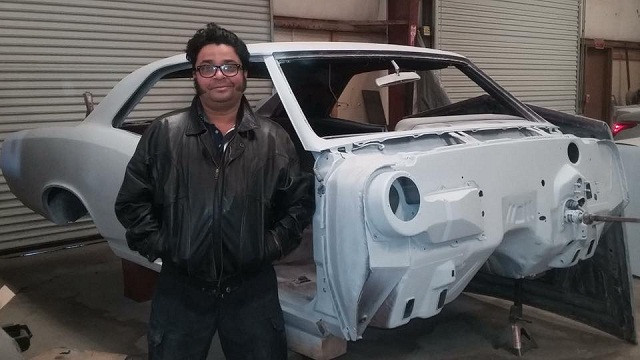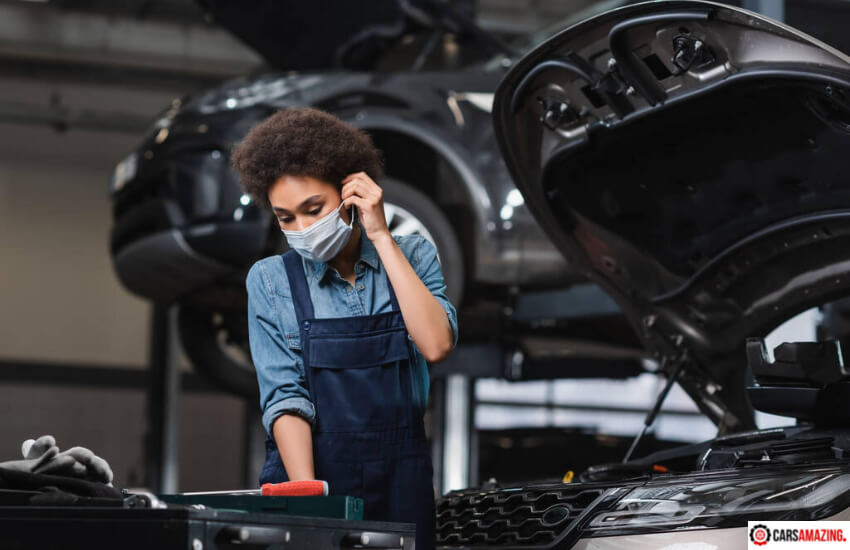Last Updated on February 8, 2023 by Leepu Da Maxim
Toyota and Hyundai are top brands that are known for their affordability, quality, and reliability. Although they are dependable, you still need to budget for maintenance and repair costs. According to Repair Pal, the average cost of maintaining a Hyundai is $468 per year, while Toyota’s is $441.
Key Takeaways
- Hyundai has higher maintenance cost compared to Toyota
- Hyundai uses premium parts and services which is why their maintenance cost is higher
- Hyundai offers longer warranty coverage and cost-effective maintenance options for its vehicles which is very convenient
How Much Does It Cost To Repair Toyota VS. Hyundai?
Below is a table that shows a breakdown of Toyota vs. Hyundai maintenance costs as determined by repair pal.
| Reliability factor | Toyota | Hyundai | Industry average |
| The annual cost of repairs | $441 | $468 | $652 |
| Frequency of trips to repair | 0.3 visits per year | 0.27 visits per year | 0.4 visits per year |
| Likelihood of severe repairs | 12 percent of repairs are considered severe | 10 percent of repairs are considered severe | 12 percent of repairs are considered severe |
As you can see from the table above, both Toyota and Hyundai are reliable, and their annual maintenance costs are less than the average across all car brands. The cost of repairing a Hyundai is slightly higher than that of a Toyota, but you will make fewer trips to the garage for repair issues. The cost of repair and maintenance varies significantly depending on the specific vehicle model and driving conditions.
Toyota VS. Hyundai Warranties
Almost every new car comes with a warranty that covers scheduled maintenance for a limited time or mileage. These warranties come in handy to ensure you save the money you would have used on regular maintenance.
Toyota Warranty
Every new Toyota comes with ToyotaCare, the basic warranty covering scheduled maintenance for 25,000 miles or two years. All you need to do is take your car to any Toyota dealership when the servicing is due. Some of the services at the Toyota service centers will include tire rotations and synthetic oil changes. You will also have a technician check the filters, fluid levels, and wear and tear, and perform regular maintenance and repairs. After the toyotaCare coverage expires, you will have to pay for the maintenance costs out of pocket.
Hyundai Warranty
All 2020 and beyond Hyundai models come with complimentary maintenance covering regular factory-scheduled maintenance for 36,000 miles or three years. This cover caters to various services, including engine oil and filter changes, multi-point inspections, and tire rotations. To get this service, visit any Hyundai dealership when your scheduled maintenance is due. Hyundai vehicles made before 2020 don’t qualify for Complimentary maintenance coverage, and you will have to pay for these services out of pocket.
Hyundai provides drivers with the option of getting a prepaid maintenance plan to make their costs lower and more affordable. The details of these plans vary depending on your vehicle model. Still, they will include tire rotations, oil changes, air filters, oil filter changes, multi-point inspections, coolant, spark plugs, HSG belt replacements, differential oil replacements, and transmission fluid replacements.
For the cost information of these plans, you will need to call Hyundai with details of your specific model to know if it qualifies for the maintenance plan coverage. If you sell your car before the coverage expires, it will be transferred to the next owner.
Extended Warranties
Other than the basic complimentary warranties, you can opt for an extended warranty to help you lower the maintenance cost of your car. An extended warranty will cover the cost of breakdowns over the course of your car’s lifetime. These warranties cover many repairs, and if the warranty price is lower than the cost of repairs, your maintenance cost will be lowered significantly. You can buy an extended warranty from the manufacturer or several reliable extended car warranty companies.
Before purchasing an extended warranty, it is advisable to research thoroughly to avoid getting a raw deal. Find out what the warranty covers and exemptions, and see if the plan makes sense to you. Extended warranties from third parties cost less than factory extended warranties and are more flexible since your vehicle can be repaired at any licensed dealership or facility. Below are some tips on what to look for when deciding which company to buy your extended warranty from.
Factors To Consider When Choosing An Extended Warranty
1. Company’s Reputation
When looking for a good extended warranty provider, look for a company with a history of reliable service. A good company consistently provides quality experiences, and they will have good reviews. Take time to research and read feedback from other customers to understand what you are dealing with.
2. Price VS. Coverage
The cost of coverage varies depending on the provider and factors such as vehicle model, mileage, and warranty plans. When choosing which warranty to buy, compare prices from different providers and the value you get. Factors such as additional benefits, term limits, and exclusions are essential since you might buy a cheap warranty whose exclusions don’t make sense. You would rather pay more for a guarantee that your vehicle is covered under all circumstances.
3. Transparency And Customer Service
The level of responsiveness and customer care shown by a company is vital when choosing one to work with. You don’t want a company that takes forever to communicate with, especially when your car needs urgent repair. The company should also be committed to open and honest communication. If the company has sample contracts and money-back guarantees, the better their services will be.
Common Problems In Hyundai VS. Toyota
Other than essential maintenance, your car might develop issues that will need money to repair from time to time. Dealing with repair costs is inevitable when you have a vehicle; luckily, the cost of repairing a Toyota or Hyundai is relatively lower than that of other brands. Below is a table showing the cost of different repairs that are common with each brand. This will give you a rough estimate of how much you should expect to spend if your vehicle develops any such issues. Kindly note that these costs vary depending on the model of your car and the severity of the problem.
| Common Toyota problem | Cost |
| Door lock replacement | $416 to $515 |
| Ignition switch replacement | $275 to $311 |
| Traction switch replacement | $124 to $131 |
| Brake pad replacement | $262 to $312 |
| Airbag sensor replacement | $484 to $509 |
| Airconditioning sensor replacement | $575 to $742 |
| Water pump replacement | $752 to $921 |
| Mass airflow sensor replacement | $175 to $259 |
| Common Hyundai problem | Cost |
| Electrical issues | $300-$500 |
| Brake pad replacement | $400 to $800 |
| Engine issues | Up to $4500 |
Conclusion
Both Toyota and Hyundai are reliable brands that make affordable and easy-to-maintain vehicles. If you want a car that will not drain you financially, any model from these brands will work for you. Hyundai is relatively cheaper to maintain than Toyota, but Toyota has a better offer on its complimentary warranty. The cost of maintaining and repairing your car will vary depending on how well you take care of it, and treat it well and it will love you back and help you save on costs.

Hi, I’m Leepu Da Maxim, a dedicated car enthusiast with over 10 years of experience in this field, and I’m thrilled to share my passion and expertise with fellow car enthusiasts like you. My journey began in my hometown West Jordan, Utah, where my fascination with the mechanics and design of cars sparked at a young age. Over the years, this passion has evolved into a commitment to providing accurate, insightful, and engaging information about all things automotive through CarsAmazing.

